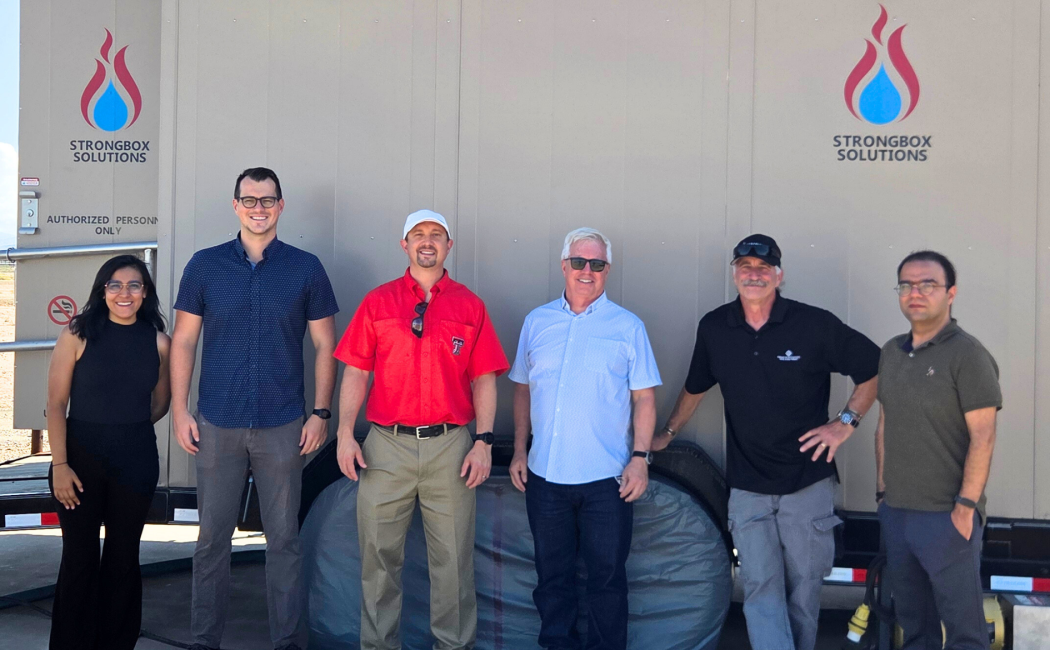


15 October, 2025
Pursuing DESAL Research Group’s mission of advancing sustainable desalination technologies through global collaboration, Master’s student Daniel Talbot recently completed a research internship at Texas Tech University (TTU) in Lubbock, Texas. The experience offered him a unique opportunity to explore inland brackish groundwater desalination—an area of growing importance for water-stressed regions worldwide.
At TTU, Daniel worked under the supervision of Professor Shane Walker, Director of the Water and the Environment Research (WATER) Center and the Texas Produced Water Consortium (TxPWC). An expert in inland desalination and sustainable water management, Professor Walker provided valuable mentorship throughout the internship, guiding Daniel’s work and research development.
Daniel’s research focused on electrodialysis (ED), combining experimental work with modeling to better understand and optimize the technology.
“I learned both the experimental and modeling aspects of electrodialysis,” Daniel explains. “From collecting groundwater samples to running tests on a PCCell 64000 ED unit, I was able to connect the science behind the process with its real-world applications.”
During his internship, Daniel also visited large-scale facilities such as the Kay Bailey Hutchison Desalination Plant—the world’s largest inland desalination plant—and the Brackish Groundwater National Desalination Research Facility (BGNDRF) in New Mexico.
“Visiting these sites really opened my eyes to the need and relevance of inland desalination and membrane technologies,” he says.
These experiences deepened Daniel’s understanding of how small-scale electrochemical adjustments can improve desalination efficiency at a much larger scale.
“The internship taught me how to think like an applied researcher—to question assumptions, explore the ‘why’ behind mechanisms, and synthesize knowledge rather than just apply it,” he reflects.
For Daniel, the lessons went beyond technical expertise. He discovered how engineering solutions must be designed within context, where even a small volume of concentrated brine can influence the viability of inland desalination projects.
Now back at KAUST, Daniel applies these insights to his research on agriculture-driven desalination systems within the DESAL Research Group. His work contributes to the Group’s broader goal of developing sustainable and integrated desalination technologies that support water and food security in arid environments.
“Even with high recovery rates, a small percentage of concentrated inland brine can determine whether a desalination process will be deployable,” he notes.
Looking back, Daniel describes the experience as “excellent, catalyzing, and fun.”
His journey reflects DESAL’s commitment to building bridges between academia, industry, and global research partners, fostering opportunities that translate scientific innovation into real-world impact.